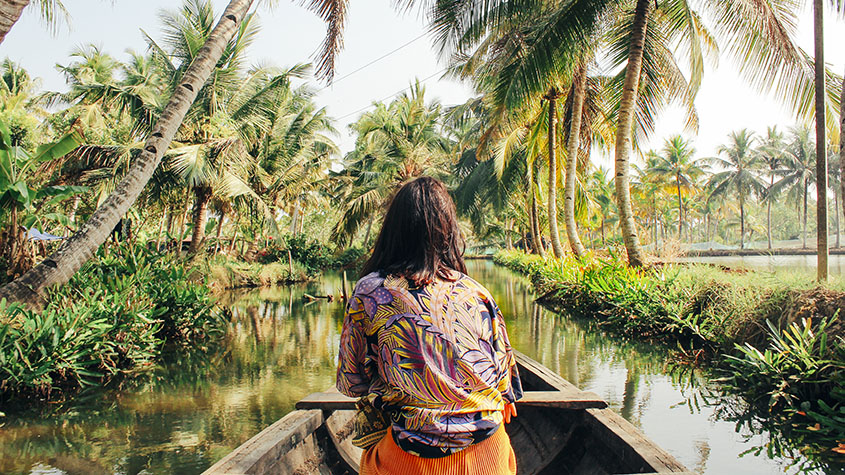As the world emerges from the grip of the COVID-19 pandemic, the tourism industry is undergoing a significant transformation. Travel patterns, preferences, and priorities have shifted, giving rise to new trends and redefining popular destinations. With safety concerns and health protocols at the forefront, travelers are seeking experiences that prioritize well-being while exploring new and familiar places.
The Rise of Responsible Travel
One of the most notable trends in post-pandemic tourism is the emphasis on responsible travel. Conscious of their impact on local communities and the environment, travelers are increasingly seeking out destinations and experiences that promote sustainability and support local economies. This shift has led to a rise in eco-friendly accommodations, sustainable tours, and initiatives aimed at preserving natural and cultural heritage sites.
Domestic Travel

The pandemic has also sparked a resurgence in domestic tourism. With international travel restrictions and ongoing uncertainty, many travelers are opting to explore their own countries. This has led to a renewed appreciation for local attractions, hidden gems, and off-the-beaten-path destinations. From scenic countryside retreats to bustling urban centers, domestic travel offers opportunities for discovery and exploration closer to home.
Outdoor and Adventure Travel
In the wake of the pandemic, outdoor and adventure travel has surged in popularity. Travelers are seeking open-air experiences that allow them to reconnect with nature, engage in physical activities, and embrace the great outdoors. National parks, hiking trails, and remote wilderness areas have become sought-after destinations for those craving adventure and a sense of freedom after months of confinement.
Remote Work and Travel
The rise of remote work has blurred the lines between work and leisure, paving the way for a new trend known as “workcation.” With the ability to work from anywhere, many travelers are choosing to combine business with pleasure by embarking on extended trips to exotic locations. This trend has given rise to a growing number of co-working spaces, digital nomad communities, and flexible accommodations catering to remote workers and digital nomads.
Sustainable Tourism Practices
As awareness of environmental and social issues grows, so too does the demand for sustainable tourism practices. Travelers are increasingly conscious of their carbon footprint and are seeking out eco-friendly travel options, such as carbon-neutral tours, renewable energy-powered accommodations, and conservation-focused experiences. By supporting sustainable tourism initiatives, travelers can minimize their impact on the planet while contributing to the preservation of natural and cultural heritage.
Popular Destinations in the Post-Pandemic Era
While the pandemic has reshaped the tourism landscape, certain destinations have remained perennial favorites among travelers. From vibrant cities to pristine beaches, here are some of the popular destinations drawing visitors in the post-pandemic era:

- Bali, Indonesia: Known for its stunning beaches, lush landscapes, and vibrant culture, Bali continues to attract travelers seeking relaxation and adventure.
- Santorini, Greece: With its iconic whitewashed buildings, breathtaking sunsets, and crystal-clear waters, Santorini remains a top destination for couples and honeymooners.
- Kyoto, Japan: Renowned for its historic temples, traditional tea houses, and serene gardens, Kyoto offers travelers a glimpse into Japan’s rich cultural heritage.
- Costa Rica: A haven for eco-tourism, Costa Rica boasts diverse ecosystems, abundant wildlife, and sustainable travel options for nature lovers and adventure seekers alike.
- Dubai, United Arab Emirates: From futuristic skyscrapers to luxury shopping malls, Dubai offers travelers a blend of modernity, tradition, and extravagance in the heart of the desert.
- New Zealand: With its stunning landscapes, outdoor adventures, and indigenous Maori culture, New Zealand beckons travelers seeking adventure and immersion in nature.
- Iceland: Home to dramatic landscapes, geothermal hot springs, and the mesmerizing Northern Lights, Iceland offers travelers a unique blend of natural wonders and cultural experiences.
- Barcelona, Spain: With its eclectic architecture, vibrant street life, and rich culinary scene, Barcelona remains a beloved destination for art, culture, and gastronomy enthusiasts.
- Maui, Hawaii: Known for its pristine beaches, lush rainforests, and iconic volcanic landscapes, Maui offers travelers a slice of paradise in the heart of the Pacific Ocean.
- Machu Picchu, Peru: Nestled high in the Andes Mountains, Machu Picchu enchants visitors with its ancient ruins, breathtaking scenery, and rich Incan history.
As the world adjusts to a new normal, the tourism industry is evolving to meet the changing needs and preferences of travelers. From responsible travel practices to emerging destinations, the post-pandemic era offers opportunities for exploration, discovery, and meaningful experiences. By embracing sustainability, supporting local communities, and prioritizing well-being, travelers can contribute to a more resilient and inclusive tourism industry for generations to come.

